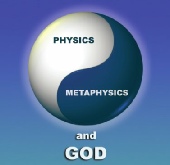



 NEXT
NEXT
 BACK
BACK
 Forum
Forum


Philosophical musings on Quanta & Qualia; Materialism & Spiritualism; Science & Religion; Pragmatism & Idealism, etc.




Post 113. January 8, 2021
Aristotle and Einstein
Metaphysical Physics
Edward Feser is a secular Philosopher, not a Theologian. But his worldview seems to be focused through the lens of Catholic theology, and in particular Thomas Aquinas’ interpretation of Aristotelian metaphysics. He is secular in the sense that he accepts modern theories of Natural Evolution and Quantum Mechanics . But he interprets their significance in terms of Aristotelian categories, such as Actuality & Potentiality. He says “I am primarily addressing the question of how to interpret the practice and results of science, not the question of how to carry out that practice or generate those results”. So the empirical approach and reductive methods are not in question. Only the broader philosophical meaning is expounded in rather subjective & holistic terms. Aristotle may have had a more pragmatic attitude toward Nature than Plato, yet he was not a narrowly-
Likewise, Feser doesn’t look at the world through a micro-
Feser contrasts two philosophical approaches to the study of Nature. Following Aristotle, he refers to them as Natural Science and Metaphysics. You might say that Science is the study of what is Actual (real), while Metaphysics is the study of what is Possible (ideal). But Feser notes that “Metaphysics . . . Investigates the most general structure of reality and the ultimate causes of things”. The latter category necessarily includes “immaterial entities” such as Plato’s Forms2 and Decartes’ res cogitans. Physical Science is, by definition, limited to the confines of the space-
According to Aristotle, though, Metaphysics is the study of Ontology (science of Existence ; Being) and Epistemology (science of Science ; Knowledge). Hence, philosophers are mental, not manual, workers. They deal, not with Actual Things, but with abstractions, including Quantity, Quality, and Potential. Scientists, in turn, study those same concepts in their realized form as physical objects. All abstractions are Idealizations. Only the objects of direct sensory evidence are fully Realized. But, interpretations of sensory inputs – including scientific theories – are products of the mental abstraction process, and hence are un-
1. Aristotle on Nature :
His concept of Nature was different from the modern materialistic definition :
“In Book II of the Physics, which is the treatise that Aristotle officially devotes to the concept of nature, he reiterates that nature is not in matter, but in form . . . “
http://www.pas.va/content/accademia/en/publications/acta/acta23/berti.pdf
2. Form :
Aristotle’s use of the philosophical term “Form” was different from that of Plato. But the Greek words translated “form” are “eidos – idea, essence, type, or species” and “morphe – shape, appearance, kind, type.” All of those are mental concepts, and none are referring to the material structure of the object.

Aristotle’s Revenge
The Metaphysical Foundations of Physical and Biological Science
Edward Feser
Philosopher of
Metaphysics & Natural Theology
“Aristotelian metaphysics is not only compatible with modern science, but is implicitly presupposed by modern science.”
Metaphysical Implications of Physics

